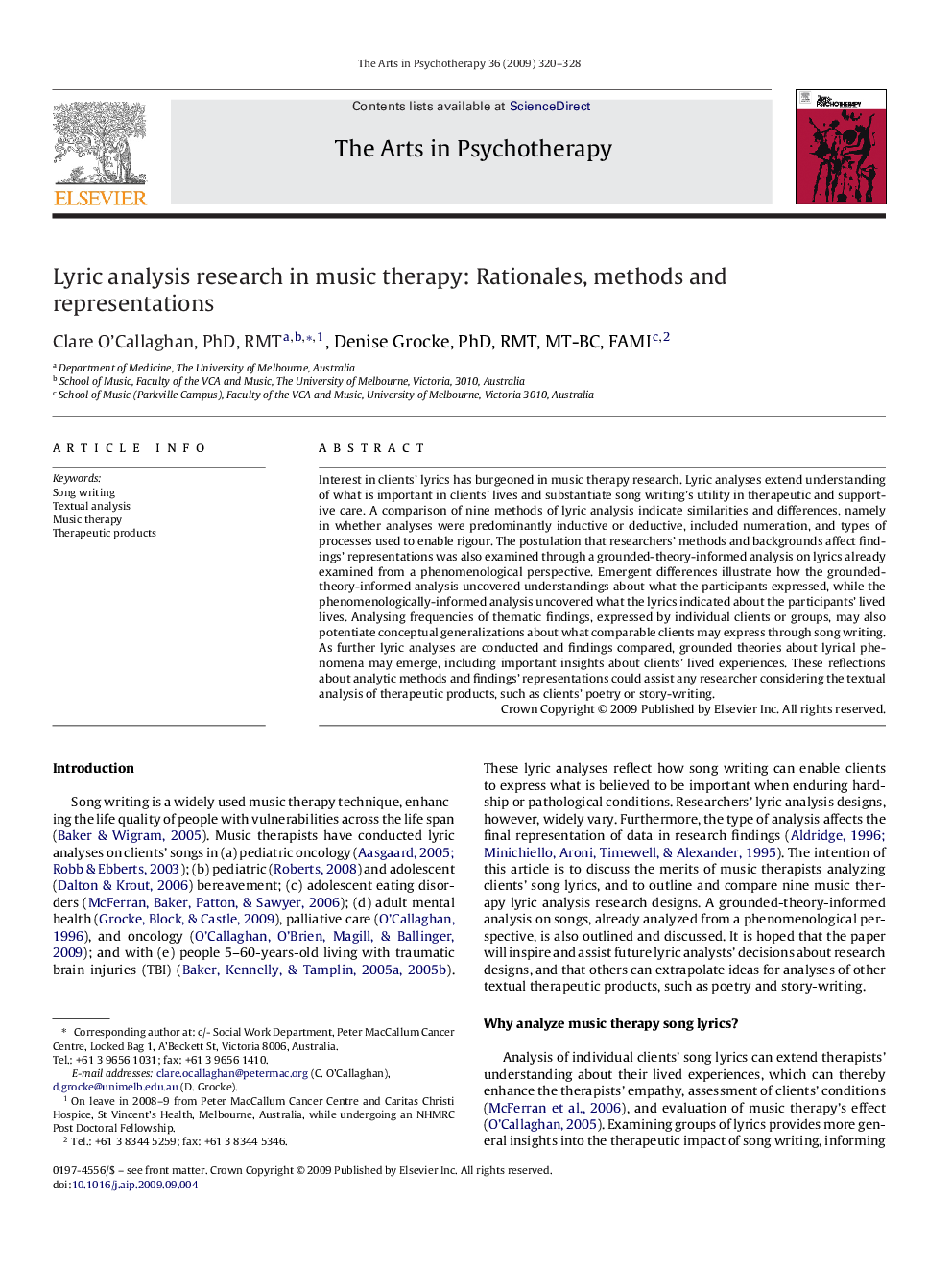| Article ID | Journal | Published Year | Pages | File Type |
|---|---|---|---|---|
| 343760 | The Arts in Psychotherapy | 2009 | 9 Pages |
Interest in clients’ lyrics has burgeoned in music therapy research. Lyric analyses extend understanding of what is important in clients’ lives and substantiate song writing's utility in therapeutic and supportive care. A comparison of nine methods of lyric analysis indicate similarities and differences, namely in whether analyses were predominantly inductive or deductive, included numeration, and types of processes used to enable rigour. The postulation that researchers’ methods and backgrounds affect findings’ representations was also examined through a grounded-theory-informed analysis on lyrics already examined from a phenomenological perspective. Emergent differences illustrate how the grounded-theory-informed analysis uncovered understandings about what the participants expressed, while the phenomenologically-informed analysis uncovered what the lyrics indicated about the participants’ lived lives. Analysing frequencies of thematic findings, expressed by individual clients or groups, may also potentiate conceptual generalizations about what comparable clients may express through song writing. As further lyric analyses are conducted and findings compared, grounded theories about lyrical phenomena may emerge, including important insights about clients’ lived experiences. These reflections about analytic methods and findings’ representations could assist any researcher considering the textual analysis of therapeutic products, such as clients’ poetry or story-writing.
